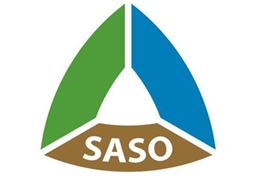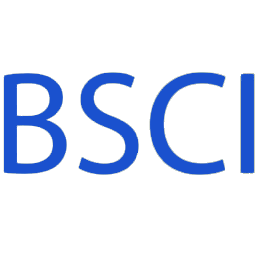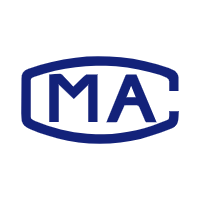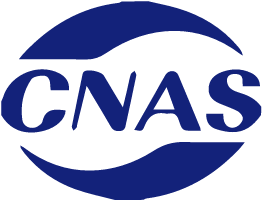
Certification introduction
SASO is the abbreviation of Saudi Arabian Standards Organization in English, that is, Saudi Arabian Standards Organization. In fact, many of the SASO standards are established on the basis of the safety standards of the relevant International Electrotechnical Commission (IEC) and other international organizations. Like many other countries, Saudi Arabia has added some unique items to the standard based on its own civil and industrial voltage, geography and climate environment, ethnic and religious habits, etc. In order to achieve consumer protection, the SASO standard is not only for products imported from abroad, but also for products produced in Saudi Arabia.

The necessity of SASO certification
The Saudi Arabian Ministry of Industry and Commerce and SASO require all SASO certification standards to include SASO certification when entering Saudi customs. Products without SASO certificates will be rejected by the Saudi port customs.
The products are exported to Saudi Arabia, and the SASO certification certificate must be issued when the goods enter the customs. The technical personnel of the Saudi Arabian Standards Organization will check the certificate; The Saudi Arabian Standards Organization conducts testing. If the test fails, the product will be refused entry, and all costs will be borne by the export company.
Authentication type
1. Pre-shipment compliance verification (Pre-shipment Compliance Verification)
This method is best for exporters or manufacturers with very few shipments. Before each shipment, you need to apply for pre-shipment inspection (PSI) and pre-shipment test (PST). CoC certificate can be obtained if both are qualified.
2. Product Registration (Registration)
This method is suitable for most customers. Its advantage is that although each shipment inspection (PSI) is necessary, each batch of goods does not need to be pre-shipment testing (PST). Customers can obtain a Statement of Registration Certificate (SfR) by submitting a declaration of compliance and providing a test report that complies with the importing country and relevant international or domestic standards, and declaring that the product has met the basic requirements and national differences of the importing country.
3. Type Approval Licensing
This method not only saves the inspection fee or test fee before each shipment, simplifies the repeated application procedures, but also guarantees the delivery time. Therefore, part of the shipments are more frequent or larger in scale, and the quality and reputation are large. Favored by the company. Exporter or manufacturer's products can only obtain the Statement for Licence (SfL) certificate if they fully meet the mandatory standards of the importing and exporting country. The certificate is valid for one year. Before expiration, you need to submit an updated factory inspection report and pay the annual fee and renew it after review by RLC. Products with SfL certificates no longer require pre-shipment inspection (PSI) for each batch, but are reduced to a few random inspections a year (generally 2-3 times / year, depending on the product status).
The test is carried out according to SASO / PAI standard or IEC standard + country difference. The requirements of SASO / PAI standard need to be considered separately, and some provisions are quite different. The rated voltage of Saudi Arabia is 220V, 50 / 60Hz (with BS plug) or 127V, 60Hz With UL plug) (need to provide another prototype for testing); Kuwait voltage is 240V, 50Hz (with BS plug).
Type certification requires factory inspection;
For electrical products exported to Saudi Arabia, the rated frequency marked on the product must include 60Hz;
The user manual of air conditioners exported to Saudi Arabia must be in Arabic and English; audio and video products, user manual must be in Arabic
The original safety regulations and EMC report must be a report issued by an accredited laboratory within 2-3 years.
Applicable product range
With the increasingly perfect regulations of the Bureau of Standards, more and more products are classified into the SASO certification list, the following part is for reference only;
The first group: toys
Toys and playground equipment
The second group: electronic and electrical products
Air conditioning system, up to 60,000 BTU (5 tons)
Combination audio or video equipment (non-professional)
Non-professional audio equipment
Video playback and recording system (non-professional)
Large motor (<12 KW)
Motor (<12 KW)
Fax, telex equipment
Household electric cooker
Washing machine (<10 KG)
Clothes dryer (<10 KG)
Electric iron, ironing machine, steam iron and hand-held hair dryer
Food processor (non-professional)
Meat cutter, meat grinder (non-professional)
Elevator, escalator
Household microwave oven
Electric stove (<10 KW)
Copier
Desktop and portable computers, monitors
Power transformer, distribution transformer (<1,000 KVA)
Household refrigerators and freezers (<40 cubic feet)
Telephone, modem
Wire and cable (<1,000V)
Non-industrial vacuum cleaners, water pumps, water sprayers,
Electric stove, electric heater
Water dispenser
Evaporative cooler (<1.5 KW)
electric fan
Refrigeration compressor (<60,000 BTU)
Tea coffee machine, hot drink machine
Incandescent lamps, fluorescent lamps, discharge lamps and lampshades, lampholders, etc.
Manual switch, circuit breaker (<30A)
Bulbs, lamps, discharge lamp sources
Discharge tube
Ballast
Plug, socket, adapter
Road lighting
battery
Underwater light
Battery pack and ground cable
Water pump (<12 KW)
Color, black and white TV
General transformer
Independent radio
Water heater (<200 liters)
Electric meter
cordless phone
Pressure cooker
Group III-Automotive
New passenger cars, trucks, buses and utility vehicles
Old passenger cars, trucks, buses and utility vehicles
car windscreen
Car brake fluid
New tires for passenger cars, trucks, buses and utility vehicles
Group 4-Chemical products
Motor oil, transmission oil, hydraulic oil, turbine oil and transformer oil
paint
Perfume and cosmetics
Household pesticides
Group 5: Other
Aluminum and aluminum alloy structural products
Steel, iron and alloy pipes
Gold, silver, precious stones and other jewelry
Face value for men-cotton shimaghs
Fire extinguisher (<24 KG)
cement
Safety matches
Low pressure household natural gas bottle pressure regulating valve
Facial tissue
cigarette
application process
The first step: review of information:
1. RFC application form;
2. Manufacturer / factory system certificate;
3. Effective product test report;
4. Final invoice or proforma invoice;
5. Packing list;
6. Authorization letter (if necessary);
Step 2: On-site inspection, the main approved items are as follows:
1. Visually inspect the surface quality of the goods;
2. Quantity (number of products, number of outsourcing boxes);
3. Packaging (product packaging, product outsourcing);
4. Logo (product's own brand logo);
5. Marks (marking information of outsourcing boxes);
6. Voltage (Saudi voltage 220V or 380V);
7. Frequency (Saudi frequency 60Hz);
8. Power
9. Origin (manufacturer or importer, MadeInChina).


BSCI certification is an abbreviation of BusinessSocialComplianceInitiative, and Chinese is called business social standard certification. BSCI is an organization that advocates the business community to abide by social responsibility. At the same time, it is a non-profit organization.

CMA, the name is \"China Metrology Accreditation\", the abbreviation of \"China Metrology Accreditation\" in English. According to the provisions of Article 22 of the Metrology Law of the People’s Republic of China: “The product quality inspection agency that provides notarized data to the society must be evaluated by the metrological administrative department of the people’s government at or above the provincial level for the capability and reliability of metrological verification and testing. Qualified.\"

Laboratory accreditation is a third-party certification that CNAS has the ability to perform specific testing and calibration work for testing and calibration laboratories.
SASO is the abbreviation of Saudi Arabian Standards Organization in English, that is, Saudi Arabian Standards Organization. In fact, many of the SASO standards are established on the basis of the safety standards of the relevant International Electrotechnical Commission (IEC) and other international organizations.
Get a quote